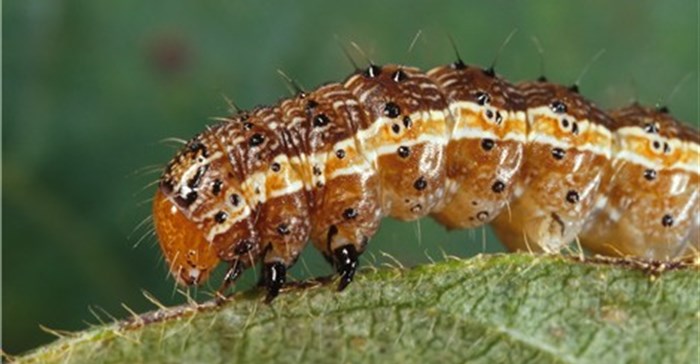Media reports indicate that Fall armyworm has been identified in Malawi, Mozambique, Namibia, South Africa, Zambia, Zimbabwe and possibly more countries in the Southern African Development Community (SADC) region and farmers are calling for urgent regional action to help control the infestation.
FAO, SADC and the International Red Locust Control Organization for Central and Southern Africa (IRLCO-CSA) met in Harare, Zimbabwe, from 14 to 16 February to discuss the ongoing infestation.
“The Armyworm is known to have a negative impact on agriculture, food security, and trade, making Sub-Saharan Africa more vulnerable due to its high dependence on agriculture,” says the President of the Southern African Confederation of Agricultural Unions (SACAU), Dr Theo de Jager.
Staple crops such as maize, sorghum, wheat, soya beans, groundnuts, and potatoes have been attacked. Farmers are encouraged to regularly inspect their crops for eggs and spray pesticides straight after detection. SACAU further encourages farmers to constantly communicate with one another during this season and share information on how to better handle the outbreak.
“After identification, correct steps towards measuring the extent of damage on crops as well as control measures need to be taken," he says. Pyrethroid class insecticides and carbaryl material can be used as control regulators, however, it is better to control the worm in its early stage due to its ability to build resilience against pesticides.
“We believe that remedial methods should be integrated and informed by expert advice from farmers based in the worm’s native countries because, unlike us, they have dealt with the pest for many years,” says Dr De Jager.
The regional workshop ended with the following key recommendations:
• There is urgent need for strengthening information and surveillance systems through sharing of information at national and regional levels and effective functioning of regional databases
• There is need to improve on the quality of information and reporting protocols for plant and animal pests
• Improvement of early warning systems through addressing fragmentation of national and regional information systems
• Strengthening inter-sectoral collaboration at country level
• Establishing the necessary structures for rapid response to emerging pests and diseases
• Revise SADC structures for coordination of technical and sub-technical committees on transboundary pests and diseases
• Need for research to fill information and knowledge gaps
• Address lack of awareness and communication of risks caused by transboundary pests and diseases
• Improve laboratory diagnostics and capacities
SACAU urges farmers to be on the lookout for unusual sightings and alert their nearest farmers’ organisation and relevant authorities accordingly.

































